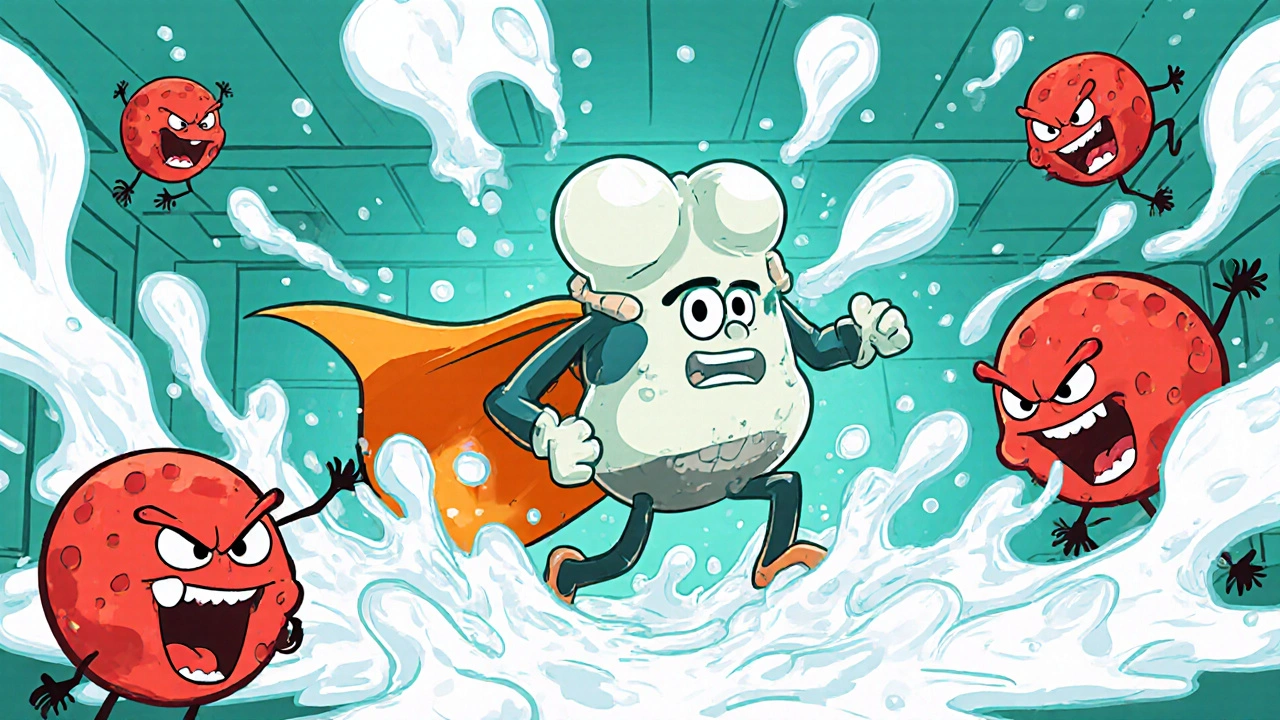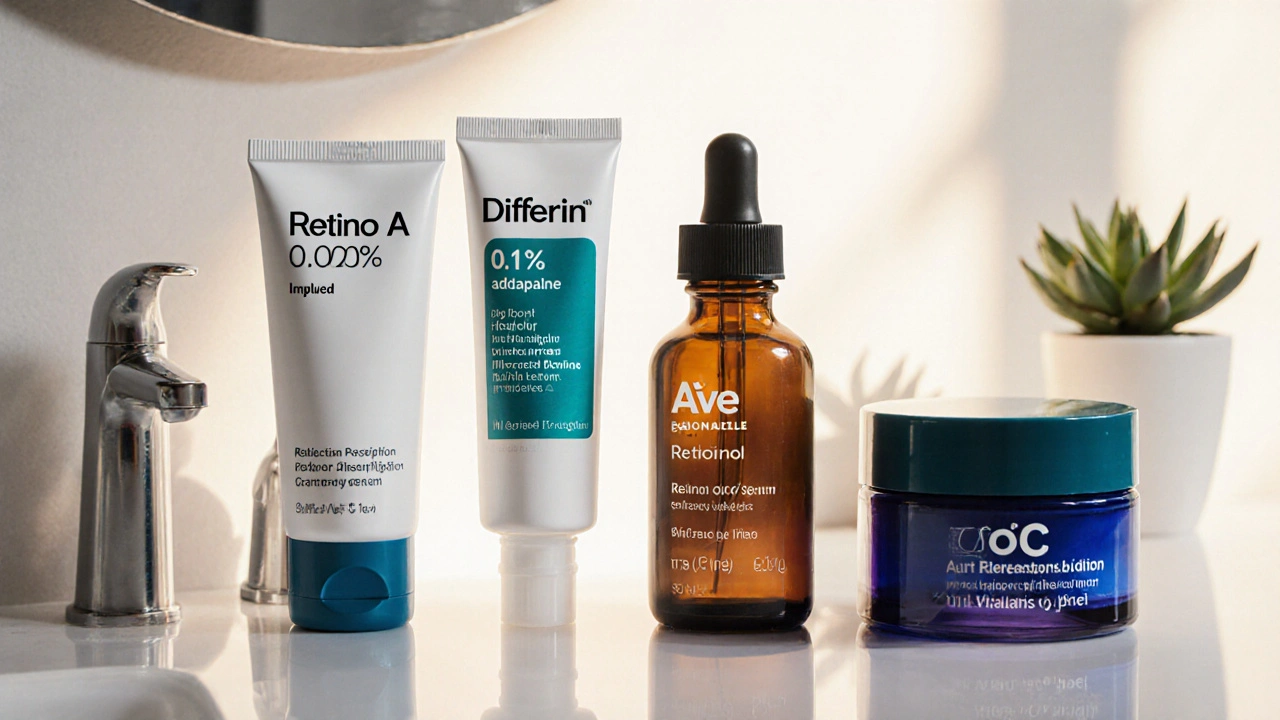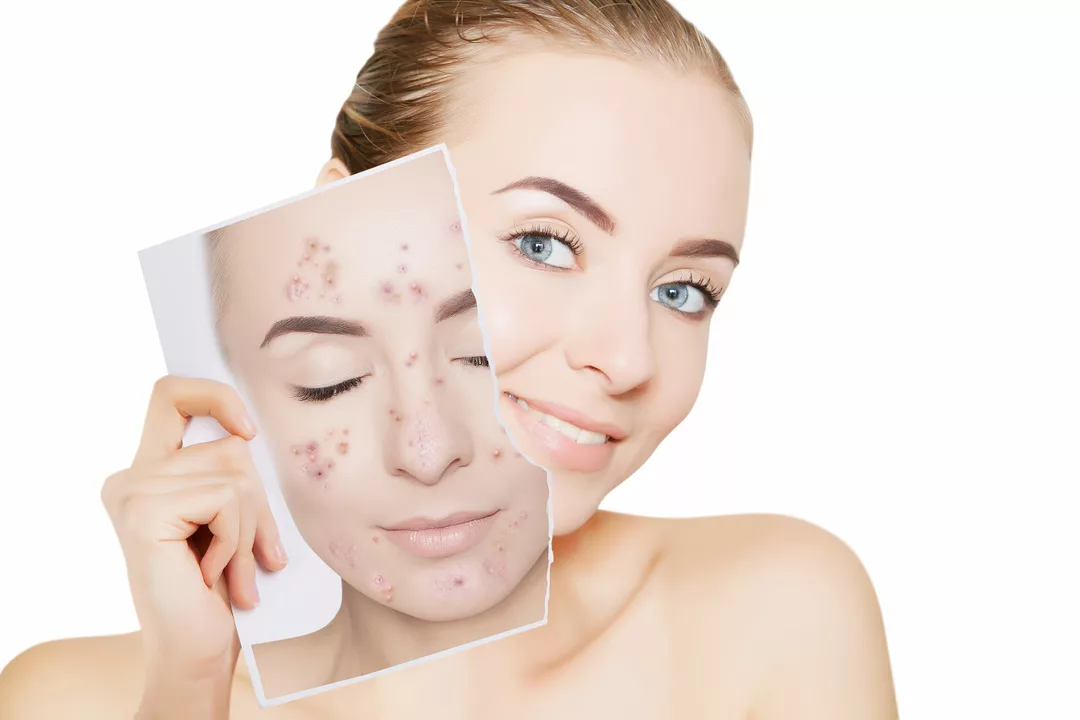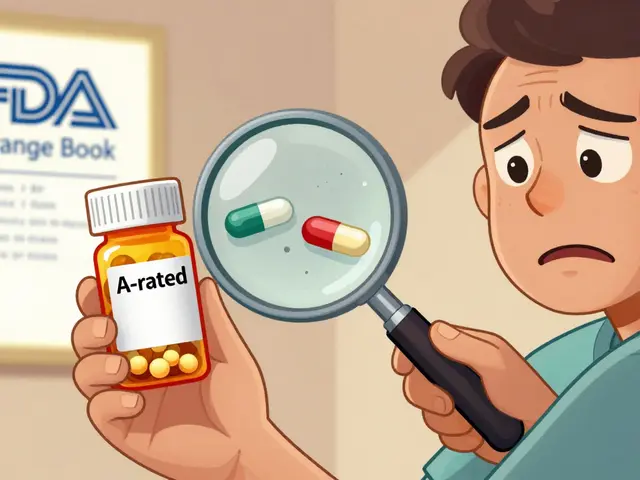Skincare: Acne Treatments, Medications, and Safe Routines
Dealing with acne or sensitive skin? You want clear, honest info and practical steps you can use today. This page collects reliable advice on topical care, prescription options, and how to manage common side effects so you can pick the right path with confidence.
Start with a simple routine: gentle cleanser, targeted treatment, and sunscreen every morning. Use products with proven ingredients — benzoyl peroxide for active breakouts, salicylic acid for clogged pores, and niacinamide for redness and oil control. Keep moisturizers non-comedogenic and light; even oily skin needs hydration to prevent rebound oiliness.
How acne medications work
Topicals work on the surface: they reduce bacteria, unclog pores, and calm inflammation. Oral meds reach deeper. Antibiotics lower skin bacteria and inflammation, hormonal options balance excess oil in people with certain patterns, and isotretinoin (Accutane) reduces oil production at the source. Isotretinoin can clear severe and persistent acne, but it requires medical supervision and strict pregnancy prevention for people who can get pregnant.
If you’re considering prescription meds, bring photos of your skin and a short treatment history to your appointment. Tell your doctor about other medicines, supplements, and health conditions. Blood tests may be needed for some drugs, and dose adjustments are common until you find what works.
Managing side effects and expectations
Side effects vary by treatment. Topicals often cause dryness or mild irritation; start slowly and use a basic moisturizer. Oral antibiotics can upset the gut or cause yeast issues; take them as directed and speak to your clinician if symptoms arise. With isotretinoin, expect dry lips and skin at first; your clinician should guide you on eye drops, lip balms, and daily moisturizers. Regular check-ins help catch mood or lab changes early.
Practical tips that actually help: patch-test new products for a week, introduce one active at a time, and avoid mixing strong actives (like retinoids and benzoyl peroxide) without advice. Use lukewarm water, pat skin dry, and skip abrasive scrubs. For acne scarring, consider seeing a dermatologist about microneedling, laser, or chemical peels once active inflammation is controlled.
Quick checklist before you buy or try something new: check ingredient lists for known irritants (fragrance, alcohol denat.), confirm the product is non-comedogenic, start with low concentrations of actives, avoid layering more than two actives at night, and keep a photo diary to track progress every two weeks. If you see steady improvement after two months, stick with it; if not, re-evaluate with a clinician.
Don't forget lifestyle factors: sleep, stress management, and a balanced diet can reduce flare triggers for some people. Makeup and hair products labeled non-comedogenic are easier on acne-prone skin. If a product causes a sudden, widespread reaction, stop using it and consult a clinician.
We have two detailed posts you might like: a real-user guide to Accutane that covers side effects and daily care, and a look at isotretinoin’s role in future acne treatments. Read them for first-hand tips and what to expect during treatment.
Want help choosing a routine? Note your skin type, main concerns, and any past prescriptions, then talk to a clinician or use our guides to compare options. Clearer skin usually comes from consistent, sensible steps—not quick fixes.

DIY Allantoin Skincare Recipes for Healthy, Glowing Skin
Learn how to make simple, effective DIY skincare recipes with allantoin to soothe irritation, boost hydration, and achieve a natural glow-without harsh chemicals or expensive products.
View More
Top Benzoyl Peroxide Acne Treatments for Every Skin Type (2025)
Discover the top benzoyl peroxide acne treatments for oily, dry, sensitive, and combination skin, with a detailed comparison table and usage tips for 2025.
View More
Retino A 0.025% Cream vs Topical Retinoid Alternatives: Full Comparison
A detailed comparison of Retino A 0.025% cream versus popular tretinoin alternatives, covering effectiveness, side effects, cost, and how to choose the right option.
View More
How Stress Triggers Skin Rashes and Simple Ways to Manage Them
Discover how stress triggers skin rashes like eczema, psoriasis, and hives, and learn practical stress‑management and skincare steps to keep your skin calm.
View More
Accutane: Real Experiences, Side Effects, and Acne Treatment Success
Struggling with stubborn acne? This article digs into Accutane, exploring how it works, who might need it, and what to expect if you go on it. Experience real, relatable advice and facts you won't find on the pills' insert. You'll also get practical tips for managing side effects and making the most of your treatment, so you can move toward clearer skin with confidence.
View More
Isotretinoin and the Future of Acne Treatments
As a blogger, I recently came across the topic of Isotretinoin and its potential impact on the future of acne treatments. From my research, I learned that Isotretinoin, also known as Accutane, is an oral medication that has been proven highly effective in treating severe acne. Its ability to reduce oil production and inflammation makes it a promising option for those struggling with persistent breakouts. However, it's essential to be aware of the potential side effects, such as dry skin and birth defects, which may require careful monitoring by a healthcare professional. In conclusion, Isotretinoin could revolutionize how we approach acne treatment, but it's crucial to weigh the benefits and risks before considering it as an option.
View More




